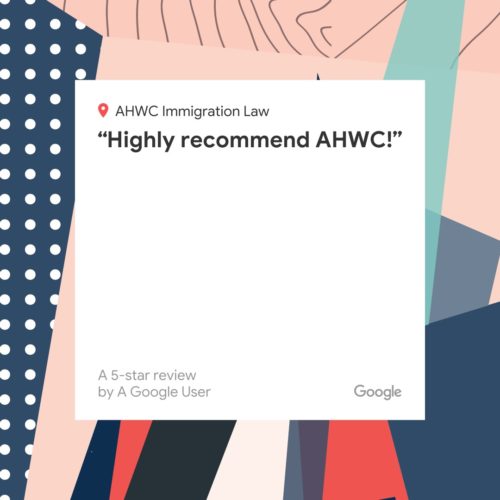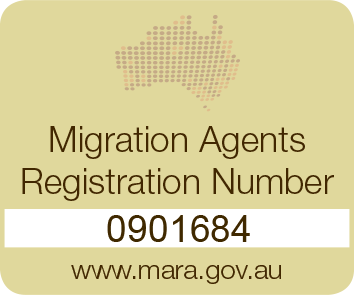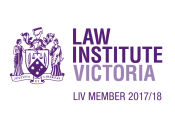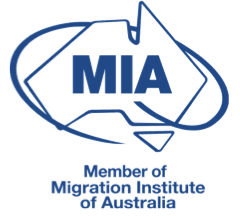Unless your business is an approved party to a Labour Agreement, it must become a Standard Business Sponsor to sponsor Subclass 482 and Subclass 494 workers.
Before a foreign skilled worker can be sponsored to lodge a Subclass 482, Temporary School Shortage (TSS) visa or a Subclass 494 Skilled Employer Sponsored Regional (Provisional) visa application, the sponsoring employer must become an approved Standard Business Sponsor (SBS), if they do not hold a Labour Agreement.
Technically, a sponsorship application, nomination application and a visa application can be lodged at the same time. From a practical perspective unless the employer is already an approved business sponsor, we lodge the sponsorship application, followed immediately by the nomination application, and again followed immediately by the visa application.
There are 3 steps to lodging a TSS Subclass 482 or a Subclass 494 Regional Sponsored visa.
- The employer must be an approved Standard Business Sponsor (SBS), or be a party to a Labour Agreement.
- The employer must nominate the visa applicant, by lodging a nomination application.
- The nominated employee (the nominee visa applicant) lodges a Subclass 482 TSS visa or a Subclass 494 visa application.
Becoming an approved Standard Business Sponsor is by far the most common way that employers sponsor overseas skilled workers.
Labour agreements are contracts entered into between the Department of Home Affairs and an employer.
Labour agreements allow approved businesses to sponsor skilled overseas workers, where for example, their occupations are not on a relevant occupation list and there is a demonstrated need for the occupations. Another use of a Labour Agreement is where a business wants to employ a particular worker who does not quite meet the criteria for and employer nominated visa (e.g. the employee may not meet the age requirement, or language requirement for the visa)
Generally, labour agreements are granted for five years and provide for the following visas:
- Temporary Skills Shortage (TSS) Visa (Subclass 482)
- Employer Nomination Scheme Visas (Subclass 186)
- Skilled Employer Sponsored Regional (Provisional) Visa (Subclass 494)
- Skilled Work In regional (Provisional) Visa (Subclass 491)
Labour Agreements are complex arrangements, and employers should consult Immigration Lawyers, experience in such matters, if a Labour Agreement appears to be a viable option to employ overseas skilled workers.
For a current list of Labour Agreements entered into by the government, please click here.
How does a business apply to become a Standard Business Sponsor?
A business may apply to become an approved SBS by lodging a formal application with the Department of Home Affairs (DHA).
The application must be approved, if the business meets the eligibility criteria.
Types of eligible businesses
Businesses eligible for sponsorship include, sole traders, companies, partnerships and trustee companies.
What are the main SBS eligibility criteria?
- You must have a business that is legally established and currently trading.
- Your business can be inside or outside of Australia.
- There must be no adverse information known about your business, you or anyone associated with you. Adverse information includes:
- where you or your business has been found guilty of an offence
- you or your business has contravened Fair Work or occupational health and safety regulations
- taxation offences
- people smuggling offences, deceptive recruiting, terrorism or trafficking offences.
- You and your business need to demonstrate a strong record of or a commitment to employing local labour, and that you will not engage in discriminatory recruitment practices.
What are my obligations if I become an approved Standard Business Sponsor?
Sponsorship obligations are taken very seriously by the DHA. Once you become an approved sponsor, you must comply with your obligations or face serious penalties. An approved sponsor may be “monitored” by the DHA/Fairwork Inspectors, at any time, and often without notice.
(These obligations are also imposed on an employer who is party to a Labour Agreement)
- You must ensure your sponsored workers are doing the work they were nominated to do. This means that if they e.g. were nominated as a carpenter, they must perform the tasks of e.g. a carpenter – and not work as something else (you’d be amazed how common this is).
- You can’t allow your sponsored workers to work for anyone else.
- You must keep accurate and up to date records, including pay records, business banking records, tax records, employee records etc.
- You must pay your Subclass 482 and 494 workers no less than what was promised to them in their nomination documents, including in their employment contract.
- You must ensure your sponsored workers have the same working terms and conditions as Australian workers doing the same job, in your workplace or similar workplaces.
- You must co-operate with Immigration Inspectors or Fair Work Inspectors (who have the same powers) if they request a site visit or request documents from you. Your business can be monitored by inspectors at any time and you will be subject to monitoring from the date you employ your first sponsored workers.
- You must inform the Department of Home Affairs when certain business events happen such as when an employee leaves your employment or is terminated, you change business addresses, you change directors, your company is deregistered etc. Generally, this must be done within 28 days of the event.
- You cannot claim any migration costs (e.g. sponsorship application fees, recruitment fees, nomination fees or the Skilling Australian Fund contribution) from your 482 or 494 visa holders.
- You must pay your sponsored employees their travelling home expenses once they leave you (economy airfares to their home country plus the cost of getting to the airport) within 30 days if requested by them.
- If a former sponsored employee becomes unlawful, you are liable for the cost of locating them, detaining them and deportation if applicable.
- For a complete list of Sponsorship Obligations click through to the DHA website here.
You can notify such events by email to sponsor.notifications@abf.gov.au, or you can complete a notification of sponsored changes form in your Immiaccount.
Fines and other sanctions.
If you breach your obligations, your business may be liable for huge (and we mean punitive) fines as well as bans on sponsorship of further employees. including those that might be eligible to apply for permanent residence. The DHA may also cancel all of your existing sponsorship approvals which will lead to cancellation of your sponsored workers visas.
We cannot stress enough how incredibly important it is that you comply with your sponsorship obligations. Worksite visits by both Fair Work Australia and DIBP monitoring are increasingly common. So common in fact that you must assume that it WILL happen, rather than it might happen.
Even if you don’t get a fine or other sanction, you may end up with “adverse information” on your file which in itself can prevent you sponsoring new 482/494 employees or rewarding your eligible long term 482 employees with a permanent residence nomination. It is critical that you, as an employer, get it right.
We have perfect solutions if you need help with your Sponsorships and/or Compliance.
Contact us today on 03 9573 5200 or by email and get our expert advice today.
We can assist you with employee nominations, sponsorship obligations and compliance under the Migration Act & Regulations.
We have assisted with monitoring and compliance of businesses ranging from large franchisors to medium and small businesses, including drafting franchisor/franchisee compliance training materials and training programs.
Alternatively, please book a consultation online with one of our expert team members in Sydney or Melbourne and we’ll explore all your compliance issues with you.


 Points Test
Points Test
 Book Now
Book Now 


